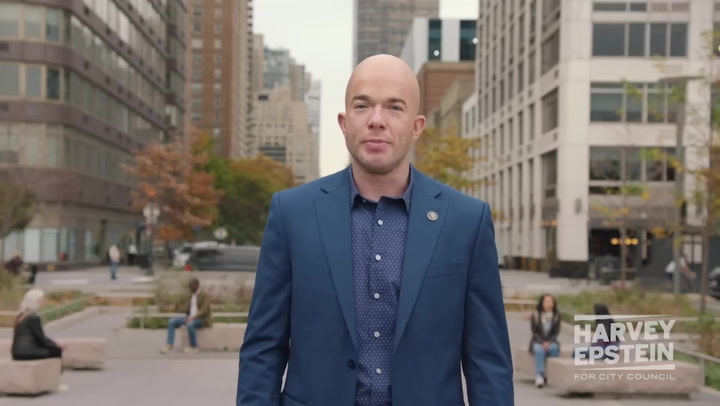Katharine Hepburn remains a towering figure in Hollywood history, celebrated for her unique contributions to cinema and her defiance of gender norms. Born in 1907, Hepburn's illustrious career spanned over six decades, during which she earned four Academy Awards and solidified her status as an iconic actress. Unlike many of her peers, Hepburn often challenged the expectations placed on women in Hollywood, both through her film roles and her personal life.
In this article, we delve into Hepburn's legacy, exploring her most significant films and the impact she left on both the industry and culture. From her early breakthrough performances to her later iconic roles, Katharine Hepburn's story is one of transformation and resilience, making her a vital part of classic Hollywood.
Her role in the 1935 film "Sylvia Scarlett," where she played a young woman masquerading as a boy, was both controversial and groundbreaking. Although the film initially flopped at the box office, it sparked conversations around gender roles and sexuality, an analysis that would grow more profound in subsequent decades.
Katharine Hepburn's artistry extended beyond her performances; her personal philosophy influenced many. She famously rejected the Hollywood glamour, opting instead to present herself authentically. She was outspoken about her aversion to celebrity culture and often refrained from traditional practices for actresses, such as giving interviews or attending premieres.
As a trailblazer for women's rights within Hollywood, Hepburn's choices shaped how women were portrayed in films, leading to more complex and robust characters. In movies such as "Guess Who's Coming to Dinner," her performances tackled pressing social issues, prompting audiences to reevaluate societal norms and prejudices.
Moreover, Katharine Hepburn's influence is still felt today in films that challenge audiences' perceptions of gender and sexuality. She paved the way for future generations of actresses and actors willing to explore the depths of their characters without being confined to traditional roles.
Early Life and Career of Katharine Hepburn
Katharine Hepburn was born on May 12, 1907, in Hartford, Connecticut. Growing up in a progressive household, her mother was a suffragette, which undoubtedly influenced Hepburn's views on gender equality and feminism. Early on, she showed promise in acting, and after her graduation from Bryn Mawr College, she moved to New York City to pursue her dreams in theater.
In the 1920s, Hepburn debuted on Broadway and quickly gained attention for her performances. However, inher transition to film would be a turning point. Her unique blend of strength and vulnerability captivated audiences, and she became one of the most sought-after actresses of her time. Despite facing occasional failures, her passion for acting propelled her career, leading to significant roles in both theater and film.
In a pivotal moment in 1932, Hepburn starred in "A Bill of Divorcement," which launched her into cinematic fame. Critics praised her performance, and she quickly secured roles in films like "Morning Glory," which earned her an Oscar. From this point, Hepburn's career soared, and she became synonymous with talent and determination.
Groundbreaking Roles and Social Commentary
Katharine Hepburn's roles were often ahead of their time, defying traditional female stereotypes. In movies such as "The Philadelphia Story" and "Bringing Up Baby," she portrayed strong, independent women who challenged societal expectations. Hepburn's characters were clever and witty, often taking the lead in romantic situations, a departure from the passive roles often assigned to women in film during that era.
Additionally, her role in "Guess Who's Coming to Dinner" emphasized the changing social landscape of America. The film addressed interracial marriage and the prejudices surrounding it, making a bold statement at a time when such topics were still taboo. Hepburn's portrayal of a progressive woman navigating these complexities resonated with audiences, showcasing her commitment to social justice.
Moreover, Hepburn's performance in "Sylvia Scarlett" was groundbreaking in its exploration of gender identity. By playing a character who disguises herself as a boy, Hepburn not only pushed cinematic boundaries but also opened up discussions about gender fluidity and expression that are still relevant today. Her willingness to explore such themes demonstrated her originality and courage.
Through her diverse roles, Hepburn laid the groundwork for many discussions still prevalent in contemporary film. Her fierce determination to portray authentic characters contributed to her legacy as one of Hollywood's most trustworthy and talented actresses, setting a precedent for the future of female representation in cinema.
The Relationship with Spencer Tracy
One of the most famous aspects of Katharine Hepburn's life was her enduring relationship with fellow actor Spencer Tracy. The pair first met in 1941 and quickly developed a profound bond that would last until Tracy's death in 1967. Their partnership was both personal and professional, as they starred in several acclaimed films together.
However, the nature of their relationship garnered much speculation. Tracy was married at the time, and the duo maintained a discreet relationship that raised eyebrows in Hollywood. Despite the controversies, Hepburn and Tracy's love story became legendary, marked by profound affection and mutual respect.
Hepburn's commitment to Tracy, even amidst the complexities of their relationship, revealed her strong character. Despite societal pressures, she refused to succumb to stereotypes of women in love, remaining true to her beliefs and pursuing happiness on her terms. Their bond was often viewed as a form of emotional intimacy that defied conventional expectations.
Hepburn's Legacy in Modern Cinema
Katharine Hepburn's impact on modern cinema is immeasurable. Her dedication to her craft and willingness to challenge gender norms helped pave the way for actresses today. Contemporary filmmakers and actors frequently cite Hepburn as an inspiration, showcasing her influence on the cinematic landscape.
Films that explore complex female characters or address pressing social issues often reference the ideals Hepburn espoused throughout her career. Her trailblazing efforts opened doors for a diversity of narratives in Hollywood, allowing for stronger female voices and stories to emerge.
Moreover, Hepburn's tenacity in advocating for her beliefs serves as a model for current artists navigating the industry. They often look to her legacy for motivation, understanding that true artistry involves risks and authenticity. To this day, Katharine Hepburn stands as a beacon of individuality and strength, inspiring future generations to continue breaking boundaries.
Katharine Hepburn is often considered one of the greatest actresses in the history of American cinema. With her fierce independence and defiance of traditional gender roles, she carved out a unique niche for herself in Hollywood. Born on May 12, 1907, in Hartford, Connecticut, Hepburn's early life was marked by a strong family influence, particularly from her suffragist mother, who instilled in her values of determination and self-assertiveness. Emerging in an era where female stars were typecast, Hepburn worked diligently to break free from the stereotypes imposed upon women in the film industry.
Her breakthrough role came in 1933 with the film "Morning Glory," where her performance earned her the first of four Academy Awards for Best Actress. Contrary to the glamorous image associated with her contemporaries, Katharine Hepburn preferred to project a persona that was true to her own values, often opting for comfort over convention in her wardrobe. This authenticity resonated with audiences and set the stage for her to challenge the status quo.
As she navigated her career, Hepburn took bold risks in the types of roles she accepted. In 1935, she appeared in the romantic comedy "Sylvia Scarlett," where she played a young woman masquerading as a boy. Although the film did not do well at the box office, it signaled the beginning of her exploration of gender and identity in cinema, themes that would come to define her work and influence future generations of storytellers.
Despite facing criticism and setbacks early in her career, Hepburn continued to challenge Hollywood norms. A key aspect of her legacy is her rejection of traditional femininity and her embrace of roles that showcased her strength and intelligence. She often portrayed characters who were independent, witty, and self-sufficient, which was a departure from the typical portrayal of women at that time.
Katharine Hepburn's collaborations with legendary actors and directors further solidified her status in Hollywood. Her long-term professional relationship with Spencer Tracy began in 1941, and they starred in numerous films together, including the acclaimed drama "Guess Who's Coming to Dinner" (1967). Their on-screen chemistry and personal relationship added depth to their portrayals of complex characters, while also sparking public curiosity about their lives off-screen.
Throughout her career, Hepburn was known for her outspoken nature and disregard for celebrity culture. She often eschewed interviews and public appearances, choosing instead to live life on her own terms. This rebellious spirit became part of her identity and made her an enduring figure in cinema history. In her own words, she famously stated, "I'm not living my life for Hollywood or publicity, and I never will. Why should I have to change my personality?"
Hepburn's legacy is deeply intertwined with her commitment to authentic storytelling and her dedication to portraying strong female characters. She faced her fair share of controversies, including speculation about her personal life and sexuality, notably after her divorce in 1934. Such rumors only intensified her mystique, and they underscored the societal challenges that many strong women faced during that era.
One of the most significant contributions of Katharine Hepburn's career was her role in advancing the representation of women in film. By breaking barriers and taking on challenging roles, she helped redefine how female characters could be portrayed. Her performances encouraged other actresses to pursue their ambitions unapologetically, transforming Hollywood into a space where women could express a wider range of human experiences.
The impact of Hepburn's work can still be felt in contemporary cinema, with many actresses citing her as an inspiration. Today, her biographical accounts, such as the upcoming book "Moxie: The Daring Women of Classic Hollywood," written by Ira M. Resnick and Raissa Bretaña, celebrate her life and influence. Scheduled for release on November 5, 2024, this book dives into the daring choices of Hepburn and her contemporaries, reflecting on their struggles and triumphs in an industry marked by both creativity and discrimination.
Hepburn's career spanned six decades and resulted in numerous accolades, including a record-setting four Academy Awards for Best Actress. Critics and peers alike acknowledged her talent and tenacity, and she remains a symbol of cinematic excellence. Her portrayal of characters with grit and determination continues to resonate today, reminding us of the importance of authenticity in storytelling.
In summary, Katharine Hepburn's legacy as a Hollywood icon goes far beyond her impressive filmography. She championed authenticity, strength, and resilience in a time when such traits were often overlooked in female stars. From her complex roles to her refusal to conform to societal expectations, Hepburn's enduring influence is a testament to her pioneering spirit in the entertainment industry.
As we reflect on her remarkable life, we recognize her invaluable contribution to cinema and the indelible mark she left on Hollywood. Katharine Hepburn's journey teaches us that true legacy is defined by the courage to be oneself, pursue one's passions relentlessly, and inspire others to do the same.




.webp)

